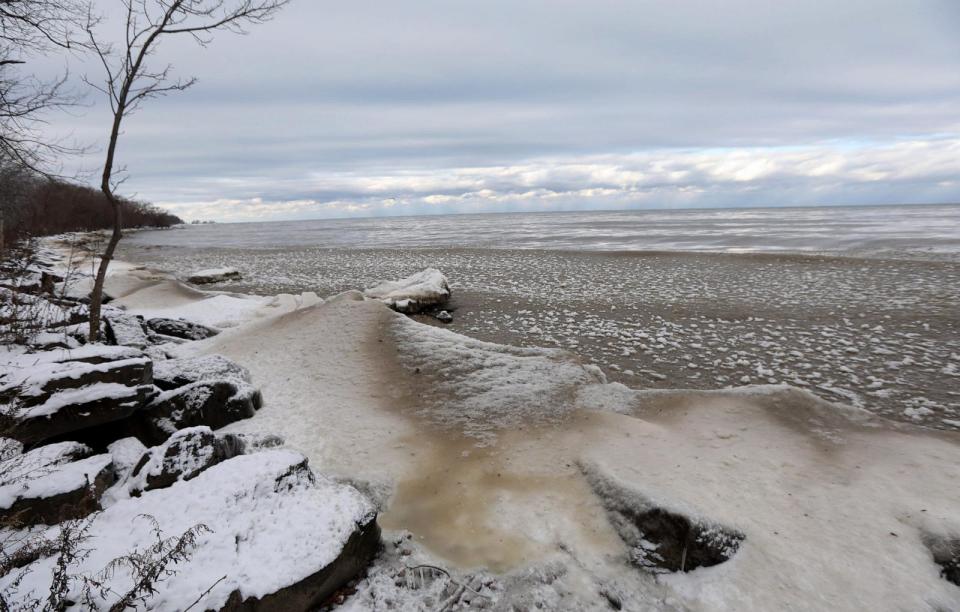There is barely any ice in the Great Lakes due to warm winter temperatures

Record warm winter weather is having severe ramifications on the ice cover that typically engulfs the Great Lakes at this time of year.
Just 5.9% of the Great Lakes are currently covered with ice compared to an average of about 40% for this time of year, according to the latest Great Lakes ice analysis by the National Oceanic and Atmospheric Administration.
Warmer winters increase the likelihood of ice-free lakes, and the upper Midwest has experienced some of the nation’s strongest winter warming trends, according to James Kessler, a physical scientists for NOAA's Great Lakes Environmental Research Lab, and Alisa Young, a climate scientist for the lab.
When comparing the average wintertime temperatures of 2002 to 2021 with the first half of the century, it is clear that the upper Midwest has experienced some of the nation's strongest warming trends, Kessler and Young told ABC News.

Despite year-to-year variability, long-term records show a 25% decrease in annual maxima of ice cover as well as a trend toward fewer frozen days across the Great Lakes since 1973, according to data compiled by the Fifth National Climate Assessment.
MORE: Minnesota dog sled competition canceled due to lack of snow, organizers say
The Great Lakes aren’t alone. Across the Northern Hemisphere, lakes are freezing later in winter and thawing earlier in spring, research shows.

On Tuesday, Copernicus, the European Union's climate change service, said this past January was the warmest January ever globally, continuing an eight-month trend of record-warmest months.
Declining lake ice can influence water levels and lake-effect snow and has cascading impacts on cultural heritage, ecosystems and recreation.
MORE: Niagara Falls boat tours to break record for earliest opening due to mild winter
In January, the John Beargrease Sled Dog marathon, one of the most beloved dog sled competitions in the Midwest, was canceled due to lack of snow.

The race typically kicks off in Duluth, Minnesota, which sits adjacent to Lake Superior.
Last spring the Niagara Falls boat tour opened at the earliest date in history -- in mid-March -- due to the lack of buildup of ice on Lake Erie.
There is barely any ice in the Great Lakes due to warm winter temperatures originally appeared on abcnews.go.com


